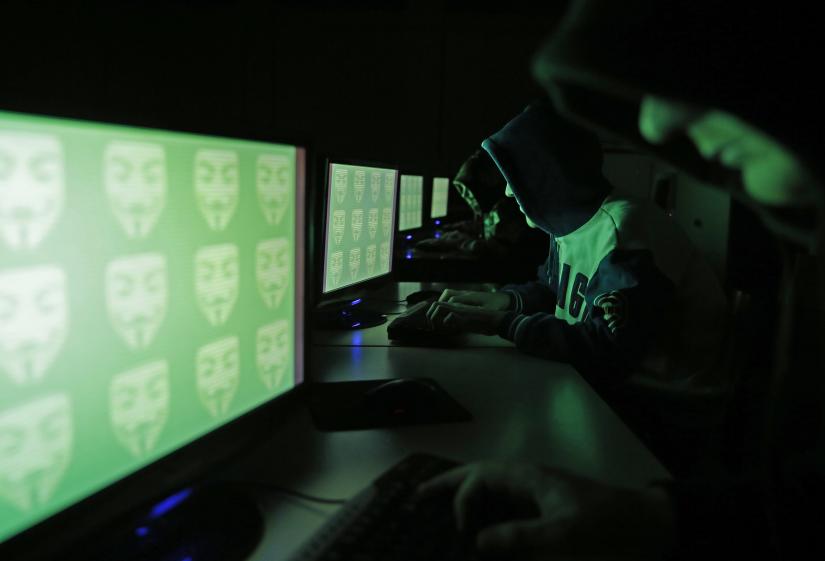Cyber criminals targeting banks now

There was a time when cyber crime was limited to spreading indecent content. Recently, however, it has reached entirely new levels with the advent of digital banking in the country.
While online and apps based banking has made life easier for everyone with most of the services just a click or touch away, it has given hackers the chance to cash on people’s lack of awareness.
The state’s graft watchdog Anti Corruption Commission (ACC) has ironclad laws to nab such crimes but most people are unaware of it. In fact, people familiar with the matter say that the users aren’t completely familiar with the technology either which making them easy targets to scams.
INS AND OUTS OF DIGITAL FRAUD
A Bangladesh Institute of Bank Management (BIBM) report says that almost 43 percent of the banking fraud is technology-based and most of the digital fraud takes place through the ATM or plastic cards.
Moreover, 25 percent of the frauds happened during mobile banking, 15 percent through online check clearing and electronic fund transfer, 12 percent through internet banking, three percent through banking software and two percent through Swift.
According to data from the various law enforcing agencies across the country, there are 172 lawsuits for online banking fraud and 82 people have been arrested so far. A total of 135 cases have been filed for mobile banking and 378 have been arrested so far.
Economist Dr Mohammad Mahbub Ali said that the banking sector was becoming risk-prone everyday as the nature of the attacks is complicated in itself and strong prevention methods are imperative to deal with these frauds.
Bangladesh Institute of Development Studies (BIDS) Senior Fellow Dr Nazneen Ahmed said that the customers have to be aware so that they don’t fall victim to cyber crime and digital fraud.
“The law enforcing agencies and related organisations also need to be active to prevent these crimes. At the end of the day it is their duty to protect technology and prevent crime,” she said.
Dhaka Metropolitan Police (DMP)’s public relations wing Deputy Commissioner Masudur Rahman says that cyber crimes take place mostly on social media.
“Mobile phones and social media-centric crimes are on the rise,” he said and added that in order to tackle it “digital policing” was being implemented.
He said that in the beginning, these crimes were limited to making threats of spreading indecent photos or videos but now many people and organisations were falling victims to mobile banking scams.
Saying that there were strict laws to deal with cyber crime, Dhaka University’s Social Science Department faculty Professor Sadeka Halim added that the laws were not effectively protecting the victims due to lack of awareness.
Halim who also serves as the department’s acting dean said, “The home ministry, ICT Division and post and telecommunication ministry are working with cyber crime. But they aren’t coordinating with each other. That’s important.”
DU’s Criminology Department Chair Dr Zia Rahman said that the police administration needs a new game plan in order to fight cyber crime.
“The law enforcing agencies played a strong role when it came to stamping out drugs, terrorism and militancy. The same needs to be done for cyber crime,” he said.
Saying that awareness was the key to prevention, he added that it’s equally important to keep one’s virtual world under control and protect it.
The country’s leading mobile banking service bKash’s Corporate Communications chief Shamsuddin Haider Dalim also said that the customers are conned mostly due to lack of awareness and bKash has taken several initiatives to keep them informed.
WHAT DO THE LAWS SAY?
The ICT act was first approved in 2006. It was amended in 2013 and the very first cyber tribunal of the country was set up in Dhaka that year.
According to section 54 of the act, damage to a computer system or computer with dishonest motives by sending emails, spreading viruses, illegal entry into the system are considered punishable crimes. The minimum punishment under this section is 7 years jail term while 14 years is a maximum with a fine of Tk 1 million.
Section 56 of the act says that if anyone intentionally damages, changes or deletes information from a computer or enters a computer server, network or electronic system illegally it will be considered a hacking crime, punishable by jail term anywhere between 7 to 14 years and maximum fine of Tk 100 million.
Section 57 says that if anyone intentionally spreads false or indecent content through websites or electronic media that leads to defamation, deterioration of law and order or has a negative impact on the image of the state or a person, then these will be punishable by maximum 14 years in prison or a minimum of seven years. The fine is Tk 100 million under this section.
Almost 90 percent of the lawsuits filed under the ICT Act has been filed under section 57.
DIGITAL SECURITY ACT AND CHANGED CIRCUMSTANCES
All cyber crimes were filed under the ICT Act until the Parliament passed the much controversial Digital Security Act in 2019.
Currently the lawsuits are being filed under sections 17, 18, 19, 20, 21, 25, 27, 28, 29, 30, 32 and 34 of the new act. These sections are similar to a few sections under the ICT Act.
A total of 14 criminal offences under 20 sections of the Digital Security Act are non bail-able, five are bail-able and one depends on negotiations.
The maximum punishment under this act is lifetime imprisonment but most of the jail terms are between four to seven years in jail.
